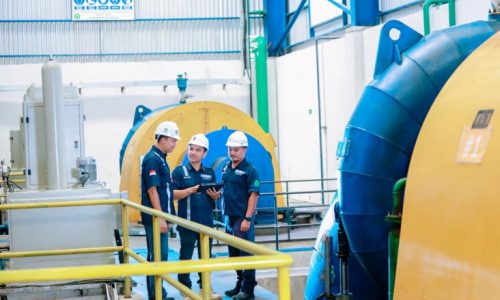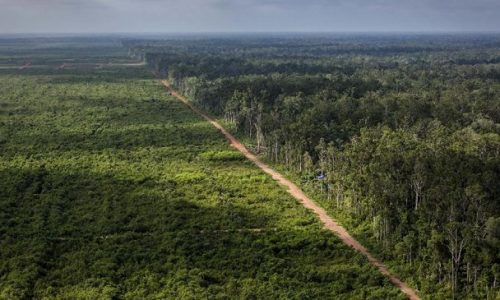Government’s plan to apply power wheeling or joint use of power network in the new and renewable energy bill has the potential to attract investors to invest in Indonesia as can be seen in the increased number of global companies committed to use 100 percent of renewable energy, an analyst says.
Mutya Yustika, Energy Financial Analyst at Energy Institute for Energy Economic and Financial Analysis (IEEFA), said the lack of renewable energy supply in Indonesia has created the risk of losing huge economic potential and Indonesia has been left behind by its neighboring countries.
“Power wheeling in Indonesia can increase economic growth through investment, creating jobs and aiding the state to meet decarbonization target without burdening national budget. This will also help state power utility PLN to focus on the modernization and increasing the network to facilitate energy transition,” Mutya said on Tuesday, October 7, 2024.
Power wheeling mechanism allows independent power producer to sell renewable energy electricity directly to costumers through PLN transmission. The mechanism can cover green energy supply gap because of the slow renewable energy development at utility scale by PLN. On the other hand, there is urgency also to reduce Indonesia carbon emission from electricity. Indonesia has produced more than 682 grams CO2 equivalent to kilowatt hour (gCO2e/kWh) that make Indonesia one of the world’s biggest emitters.
Besides, power wheeling is also encouraged by more than 430 global companies in the RE100 list that have commitment to achieve 60 percent of electricity from renewable energy by 2030 and 100 percent by 2050. Currently there are 121 members of RE100 that are operating in Indonesia.
“However , the companies have no renewable energy solutions that are sufficient enough to electrify their facilities and supply chains, so it hampers commitment efforts of RE100 and the companies’ mandate for sustainability,” Mutya said.
With the implementation of power wheeling, Indonesia can capture new investment opportunities from data center business. Google has a target to achieve net zero emission in all its operations and value chains by 2030. Microsoft has also commitment to be negative carbon at the same time. Meanwhile, Singapore which has become prominent data center in Southeast Asia in the last couple of years, is facing limited number of renewable energy supply and high operational costs.
“Therefore, Indonesia needs to provide large scale access to clean energy for companies, such as Google and Microsoft, as option to build their data center outside Singapore that can also meet their sustainable global goals,” Mutya said.
Indonesia has a robust digital economy and can play important role in expanding data center. Indonesia digital economy has gross merchandise value worth US$77 billion in 2022 and is estimated to increase to US$220-360 billion in 2030, that make Indonesia the biggest digital economy in Southeast Asia.
Fair and transparent
According to Mutya, the implementation of power wheeling will also benefit PLN as it will help them maintain power supply, mainly outside Java and Bali. Besides, PLN will also secure additional income flow by renting its transmission facility to private electric companies through wheeling charge.
“Wheeling charge must be set fairly and transparent to avoid excessive price as well as maintain the system integrity. The charge is important to attract investors and protect PLN as owner of the transmission network,” she said.
However, the implementation of power wheeling is still hampered by internal disputes within the government. There are concerns that power wheeling will exacerbate electricity oversupply and PLN’s take-or-pay scheme with Independent Power Producers (IPPs), posing significant financial risks to PLN.
“The solution to the problem should be contract negotiation with IPPs, cost efficiency, and retirement of inefficient coal-fired power plants combined with an appropriate power wheeling formula,” Mutya said.
On the other hand, Indonesia must move quickly to avoid falling behind other countries in Southeast Asia. This is because two neighboring countries, namely Vietnam and Malaysia, have implemented power wheeling and immediately felt the benefits.
Vietnam has issued a Direct Power Purchase Agreement (DPPA) that facilitates the direct sale of renewable energy between private project developers and consumers. Malaysia introduced the Corporate Renewable Energy Supply Scheme (CRESS) which aims to increase corporate access to green electricity through an open grid system.
Following the announcement of the policy, companies such as Alibaba, AWS, and Google plan to explore business opportunities in Vietnam. Meanwhile, Google and Oracle recently announced investments in Malaysia that are expected to contribute more than US$9.5 billion to the country’s economy by 2030.









